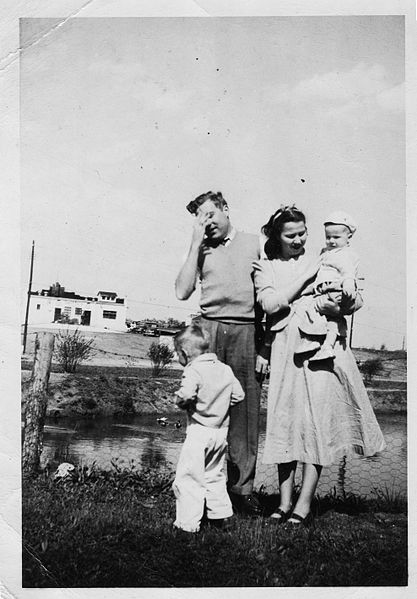whataboutery
(wat-uh-BAUT-uhr-ee)
(n.) The practice of responding to an accusation by making a counter-accusation, real or imaginary, relevant or irrelevant. Protesting at hypocrisy; responding to criticism by accusing one’s opponent of similar or worse faults. Protesting at inconsistency; refusing to act in one instance unless similar action is taken in other similar instances.
Sound familiar?

Image, W. Esser, Bodleian Libraries via Wikimedia Commons. Translation: “Now I have to go to Elba with my cock, calmly.”
etymology:
Earliest documented use: 1974. Originally used in describing political discourse during the Northern Ireland troubles, it has also found use in discussions of the origins of other prolonged sectarian conflicts, such as the Israeli–Palestinian conflict. It was widely employed by then USSR as a propaganda technique and is now often a favorite of our current president. It is also known as whataboutism. “Turbo-charged online whataboutery is destroying proper debate.” – Helen Lewis, Nov 26, 2015
“There is a cult of ignorance in the United States, and there always has been. The strain of anti-intellectualism has been a constant thread winding its way through our political and cultural life, nurtured by the false notion that democracy means that my ignorance is just as good as your knowledge.” -Isaac Asimov, scientist and writer (1920-1992)
Continue reading →
























































Can you hear me laughing??? I love this fun word for a human condition that happens as I recall starting as a young child. Remember dreading being around those relatives that were always doing embarrassing stuff at gatherings? When you are small there is no where to run and so you just try and hide behind your Mom trying to be invisible. Then when I got to be a parent and my kids did things that caught me off guard, I remember those same feelings of aghast washing over me. There still wasn’t anywhere to run too!! LOL!!
My kids never did it to me (perfection, after all), but books and movies most certainly do! I’m cringing just thinking about cringing.
Oh yes. I have felt this way many times! Interestingly enough it’s more because of my husband than it is my children! He’s really good at embarrassing me at all the worst moments, but we tend to laugh about it later on!
great word for those of us who have families like mine- ie way out there! I was often the source of their myötähäpeä however as well. nope no one is shy in my extended family.